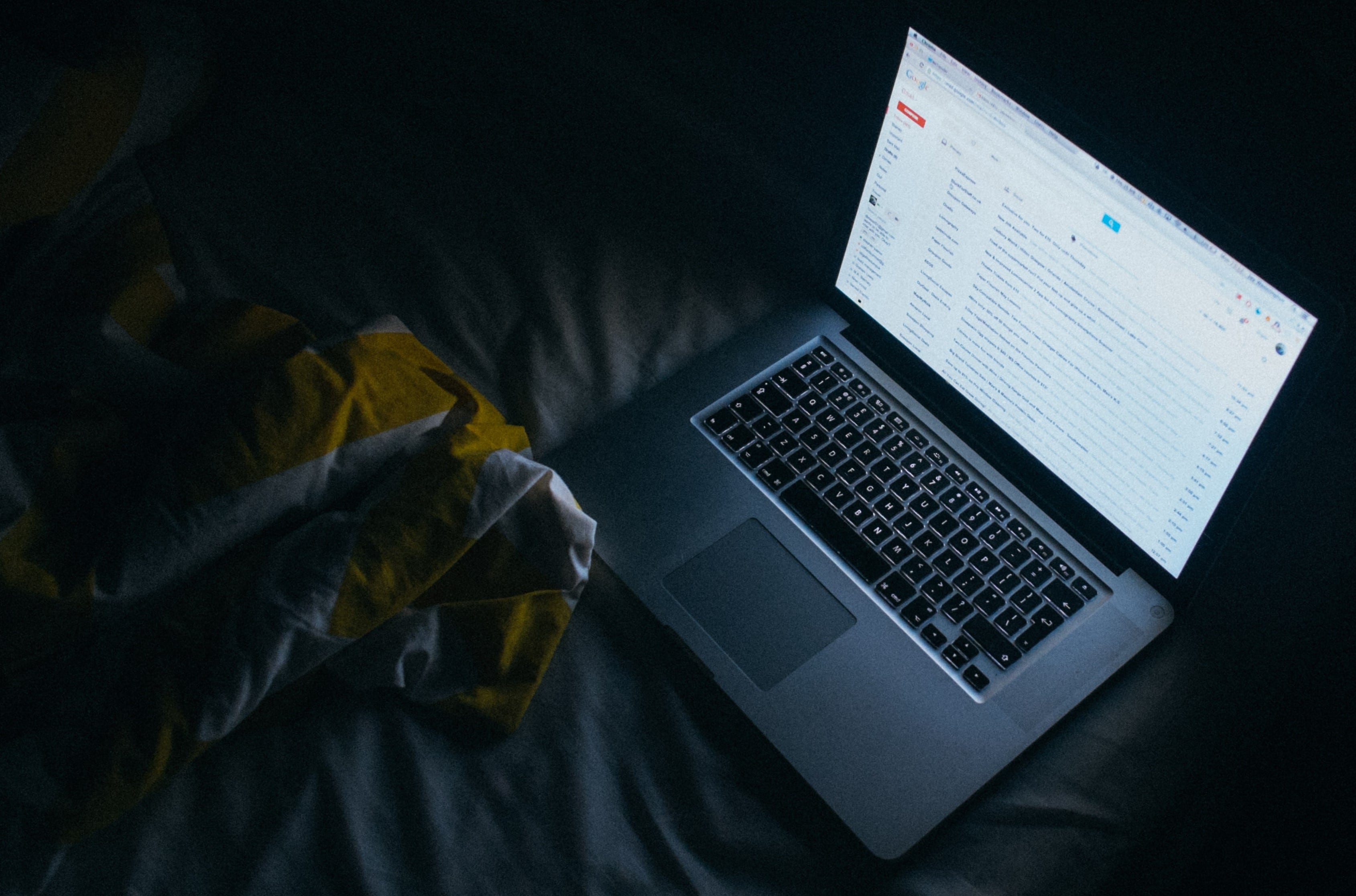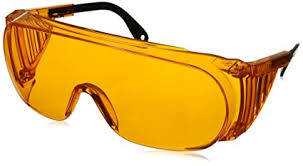
More evidence blue-light blocking glasses can help your insomnia
By Jason Wooden, PhD
While this may seem like a good way to unwind, what you need to know is that these electronic devices could be wrecking your sleep.
In a National Sleep Foundation poll, 9 in 10 Americans reported using an electronic device in the hour before bedtime with TVs being the most popular. They also found that 61% of the respondents used their computers or laptops regularly in the evening.
So, what’s the big deal?
It’s turns out that the body’s natural sleep/wake cycle is regulated by light. TV, tablet, and smart phone screens all emit bright blue light that can interfere with your sleep-wake cycle and cause insomnia.
The blue light is believed to slow the production of melatonin, a hormone that tells your brain it’s time to sleep. Some studies have found that using an ebook reader before bedtime can affect melatonin secretion and as little as a two-hour exposure to light from an iPad can have similar effects.
According to the Centers for Disease Control, 1 in 3 US adults don’t get adequate sleep. Many of them may be shooting themselves in the foot at night with a smart phone, tablet, or TV.
The best remedy of course is to practice good sleep hygiene and avoid using these devices in bed at night. You should keep your bedroom cool, dark, and quiet.
One option is amber-tinted glasses which are designed to block the blue-light wavelengths:
They have been shown to prevent melatonin suppression by bright light, but do they really help with insomnia?
Researchers at Columbia University Medical Center recently reported the results of a randomized controlled clinical study of adults with insomnia. Some were given glasses with amber-tinted lenses to wear 2 hours before bedtime while others were given glasses with clear lenses.
Participants were told to wear the glasses whenever they used an electronic device in bed or if a light was turned on during the light.
They found that wearing amber glasses for 2h preceding bedtime for one week improved sleep in individuals with insomnia. They slept longer and had higher quality sleep.
While the study was somewhat small (only 14 individuals), it is one of the first of its kind to show that blue-light blocking glasses can help with insomnia. That’s good news because this is a cheap and safer alternative to sleeping pills.
These glasses may provide other health benefits such as reduced eye strain and a lower risk for macular degeneration.
If you decide to give this a try, be sure to find glasses that block out as much blue light wavelength (440 nm to 470 nm) as possible and feel comfortable so that you wear them consistently.
You can get them as a prescription from an eye doctor, but they are also available online. (We’ve listed some options here.)
Blue-light Blocking Glasses: 4 Things to Remember
2. Evening use of light-emitting eReaders negatively affects sleep, circadian timing, and next-morning alertness. Proceedings of the National Academy of Sciences USA, 2015, volume 112, issue 4, pages 1232 – 1237.
3. Light level and duration of exposure determine the impact of self-luminous tablets on melatonin suppression. Applied Ergonomics, 2013, volume 44, issue 2, pages 237-240.
4. Blue blocker glasses impede the capacity of bright light to suppress melatonin production. Journal Pineal Research, 2006, volume 41, issue 1, pages 73-78.
5. Blocking nocturnal blue light for insomnia: A randomized controlled trial. Journal of Psychiatric Research, 2018, volume 96, pages 196-202.
Connect with us:
About Us
Better Sleep Simplified® was founded as a place for you to get clear and well-researched information.
Our goal is to make sure you know about your options so that you take action sooner rather than later.
Check us out on YouTube:
Watch and Learn
Helpful sleep tips, interesting sleep facts and statistics you want to know about
Affiliate Disclosure
This site is a participant in the Amazon Services LLC Associates Program and other affiliate advertising programs designed to provide a means for sites to earn advertising fees by advertising and linking to them.
Important: BetterSleepSimplified.com is for informational purposes only and is not intended or implied to be a substitute for professional medical advice, diagnosis, or treatment. Always consult a physician for sleep and health concerns. See additional information.

